Without the context, the 21st century burial of a Medieval king must seem like a quirky, but nevertheless meaningless item on the news.
After all, Richard III has been dead since 1485, so his skeletal re-emergence now can hardly be relevant in the modern world. His sphere of influence died with him at Bosworth. Or did it?
For the movers and shakers in Britain today, the discovery of King Richard's remains may be viewed as an inconvenience at best. Powerful people might smile and go through the motions, but you can bet that many wish him firmly back in the ground with the car-park tarmac undisturbed above him.
This fuss is an embarrassment with the potential to erupt in unwelcome debates, which may shift the status quo in unforetold ways.
Medieval Richard III's modern day funeral brings two wildly distinct ages clashing discordantly together. It's perhaps as close as we'll ever get to witnessing a time warp televised live to the nation.
Polite smiles upon the faces of the Powers That Be will mask their hope, that it's all spectacle enough to make it all just go away without a hitch. The sooner he's buried, and his grave reduced to the status of yet another British historical attraction, the better.
With all the context, historians are watching in utter fascination. Richard III's funeral has plenty of relevance in the 21st century.





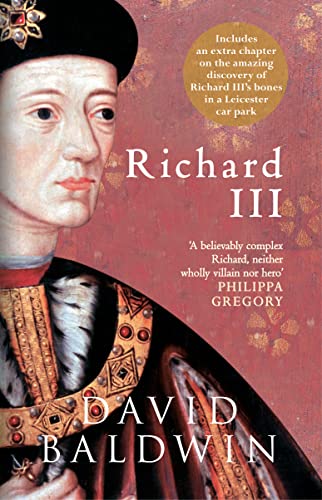



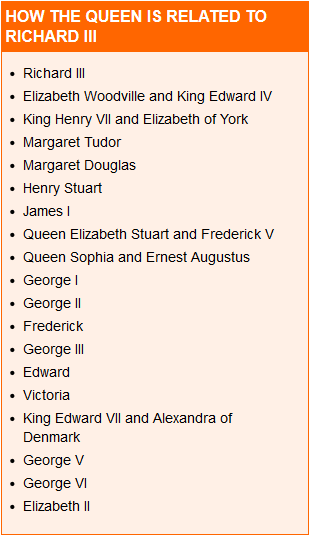




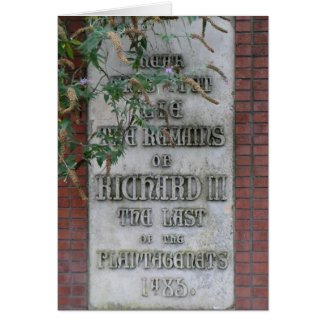













 St Tydecho's Churches in West Waleson 09/03/2014
St Tydecho's Churches in West Waleson 09/03/2014
 Goodies for an Outlander Premiere Partyon 03/06/2015
Goodies for an Outlander Premiere Partyon 03/06/2015
 Holocaust Memorial Day Interview with Rainer Höss, Grandson of Rudolf Architect of Auschwitzon 01/24/2015
Holocaust Memorial Day Interview with Rainer Höss, Grandson of Rudolf Architect of Auschwitzon 01/24/2015
 Romantic Valentine Gifts for an Outlander Fanon 01/16/2015
Romantic Valentine Gifts for an Outlander Fanon 01/16/2015

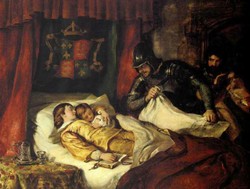
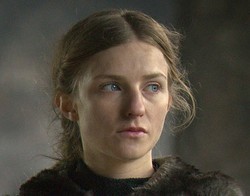
Comments
You raise some excellent points and I for one was disappointed that Richard did not have a Catholic burial and also that members of the Royal family were notably absent.
With regards to the Princes in the Tower, Richard had no need to have them killed. He had already had them declared illegitimate.
A local legend to here though, NW England is that at about the time that the princes disappeared, two young boys of noble birth came to live with Sir Francis Lovell, Lord Longdendale and close friend of Richard 111. These boys were brought up as his own sons. Even if Richard had had these 2 princes killed, they had several other siblings to take their place. I feel it is unlikely that Richard is behind their disappearance.
The Tudor propaganda is still holding sooooo well. I've delved so deeply into that history and I honestly can't see why he'd kill the Princes in the Tower. It makes no sense whatsoever.
Hear hear on all counts. :)
As for crusades, what John Paul said was significant. When George Bush called the Iraq war a crusade, nearly igniting the Muslim world in fury, John Paul 2 declared, "There is only one person on earth who can call a crusade, and I am he. I have never called one and never will."
I don't want Richard the Lionheart back, either as a legend or through reincarnation. We can do without the legend, and if reincarnated he is quite likely to be an armed robber.
Richard will come back next time Britain feels like its religious might needs a boost. We've lost our appetite for Crusades, that's all.
Arthur and Alfred! You are right about the flipping back and forth. We have these kings, real men, who have taken the status of myths. Godwinson, the last true Saxon king of England. Maybe he should be the third in the trio. At least we have lost interest in that thug Richard the Lionheart, who spent but ten months in England in his ten year reign.
Ember - This is precisely the sort of thing which I have hours of fun doing. Historians are basically people who love a good story, then going off on adventures.
Brenda - Frank called it. It's all about looking at old maps and contemporary accounts, plus attempting to follow the story of both the ruins and the grave though later accounts. It was pain-staking work which paid dividends.
Frank - I think that Harold would be a much safer proposition insofar as British culture is concerned. He's not been demonized in a Shakespeare play for a start. Even better to find him during an Alfred the Great phase (Britain flip-flops back and forth between Arthur and Alfred).
Ali - You are completely right. *blush* May I just plead insanity and quietly correct it? Thanks for having my back here. :)